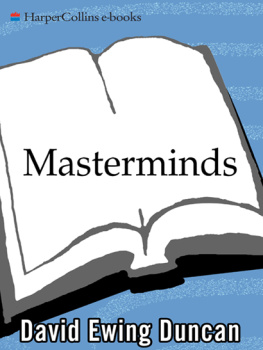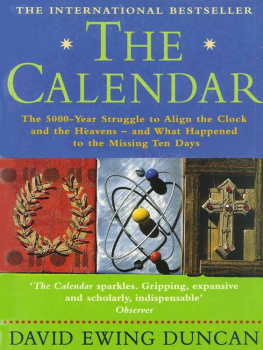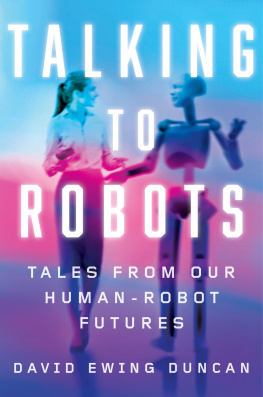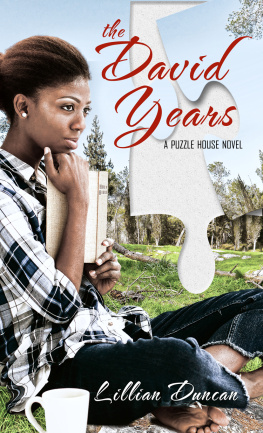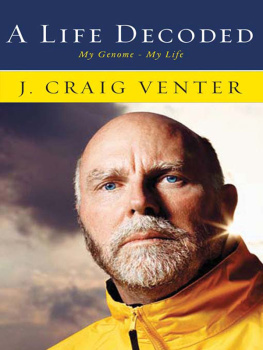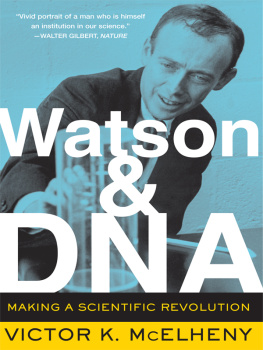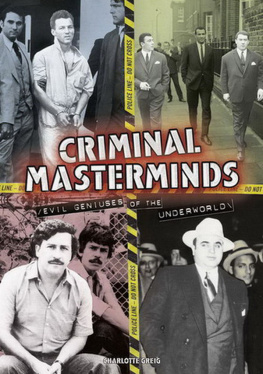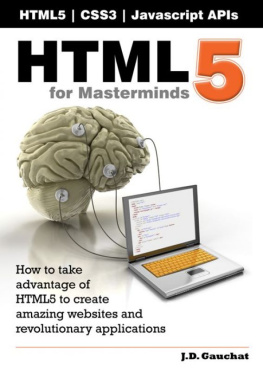Theres a high probability that for Homo sapiens, the process of evolution as we currently think about it, as natural selection, is for all intents and purposes over. It is going to be replaced by our desire and capability to tinker.
Stuart Schreiber, Harvard geneticist
I m playing hoops with Erik the Red on a half-court at the ends of the Earth, and he is toying with me. Also Icelands most famous geneticist, hes dribbling a basketball in a Reykjavik gym on a typically damp, cold day in August near the Arctic Circle. Notorious for being rude, as well as brilliant and filled with an infectious passion, Kari Stefansson, a descendent of Erikan early Viking explorer and marauderinsisted that I go one on one.
Every day at 2:00 P.M ., when hes not wandering the globe rustling up cash or giving talks, Stefansson drives from his office downtown across this speck of a capital city, home to nearly all of Icelands 290,000 people, to a gym that requires a retinal scan to enter (Icelanders love gadgets). Just beyond the gyms parking lot the city ends and a hardened lava field begins, though this is hardly a landmark in Iceland. Here the black rock everywhere remains raw, hardened in waves and eddies, once lava-hot, covered only by a thin veneer of lime-green moss. Overhead, the sky boils with immense gray-white clouds that turn nearly black above a ridge of distant mountains where active volcanoes still blow off steam. The land looks ripped from a primeval moment in history, when cones spewed ash and fire and Titans roamed the Earth.
Its a fitting place for Stefansson to be exploring the raw ingredients of life, the nucleotides and other molecules that he first began to study as a medical student at the university here before moving on to the University of Chicago and then to Harvard. There, as a medium-important neurologist, he delved into the mechanics of multiple sclerosis and other maladies of the brain. At first, before new technologies made deoxyribonucleic acid (DNA) easier to work with, he cut open the brains of persons who had died of neurological disorders. Later, he parsed out their DNA, looking for links. But the academic approach was too slow, so in 1996 he returned home to Iceland to start a company.
On the court Stefansson destroys my pathetic game, despite being fifty-six years old to my forty-four, a difference he notes everytime he overpowers me to plant a basket. At six feet, five inches, with close-cropped white hair, a pointed beard, and biceps that bulge out of the tight black designer T-shirts he tends to wear, Stefansson looks as formidable as his wild-eyed Norse forebears in the Icelandic sagas he likes to read, those hairy warriors who sailed in flat-keeled longboats one thousand years ago, snatching women from the British Isles and taking them to this bleak edge of the earth.
I havent played basketball in years. When I finally grab the ball he flashes me a glare that Erik might have used before hacking to death an enemy in the tenth century.
Prior to playing, we had been talking about a test that Stefanssons company, deCode Genetics, had just run on my DNA, a journalist-as-guinea-pig experiment to check my nucleotides for genes associated with disease. Back in the States, I had a lab extract three vials of my blood to ship on dry ice to Reykjavik. deCodes technicians then plucked out my DNA from the white blood cells and tested it against the companys database of genetic maladies. Do I have a genetic proclivity for heart disease, Alzheimers disease, osteoporosis, anxiety? We will tell you if you are crazy, or if you might die of a stroke. You will become our first American lab rat, he had told me a few months earlier, when we met during a biotech conference in New York.
Stefansson had promised to reveal my results when we returned that afternoon to his office, making me one of the first persons ever to reveal publicly so much personal information about a raft of disease markers hidden in everyones genes. In a few years, he says, these tests will be routine: a screening like a cholesterol test that will tell us whether we might one day contract a dread disease or die sooner, rather than later. They also might be used to tease out genes that affect behavior, telling us whether we have a predilection for anger, risk taking, happiness, or homicide. Yet I know this sort of predictive genomics is still very much nascent, the information incomplete, the connections between genes and disease or behavior murky, the forecasting power faulty and poorly understood. But Im willing to listen, and to imagine the possibilities as described by this Armani Viking.
Of more immediate concern to me is how to react if Stefansson tells me that my nucleotides may be harboring an aberration I never suspected, a dread disease ticking inside me like a secret time bomb ready to strike when Im fifty years old, or seventy. A fatalist, I dont think much about how I might get sick or die, but I cant help but feel a small apprehension.
On the court Ive got the ball and Im dribbling toward the basket, making a few clunky moves I remember from years back. I whip around Stefansson; he pushes in close and I feel his hot Viking breath on my face. I zig left; he cuts me off. I zag right, and we crash shoulders as I push to turn a corner around him. Hes behind me, pushing, and I start my leap, holding the ball up, eying the basket when he blurts out, I have your DNA results.
Yeah? I say, suspended for a moment in the air, feeling that electric rush that says this ball is going to connect, its going into the damn basket.
You are genetically defective.
I hesitate for all of a split second. He jumps high and grabs the ball, twirls, and races down the court, dribbling and flashing me Eriks demonic smile.
I m visiting Kari Stefansson as part of an experiment to unlock the secrets of my own DNA. In due course, I will find out my results. But as I watch him play, his dark green eyes alluring and murderous, Im struck by a simple revelation. Stefansson in many ways is the early-twenty-first-century equivalent of Erik the Red. He is a marauder and warrior, a larger than life figure who slices through frigid waters in a longboat with an outsized passion to conquer, to achieve glory, and perhaps to get rich, but mostly for the sheer joy of it.
Lest we build him up too much, Kari Stefansson is also just a man. I have seen him tired, and downcast. On one of my visits to Iceland, the stock in his company had dipped down to about two dollars a share, prompting him to fret about an unwanted suitor who might attempt a frontal assault to buy the company out from under him. The Viking was watching his backsidethough this Norseman is also a physician who wants to alleviate suffering, if he can. Moody and stormy, he looked depleted after a round of calls to investors and advisors, as if he had been fighting the Furies all day and was still standing, but was exhausted by the effort.
I t seems evident that Stefanssons prickly, infectious personality is crucial to his success in being a scientist and entrepreneur: that peculiar blend of DNA and experience that makes this Viking gene master a genius, bully, and force of nature. As he humbles me by swishing yet another basket, I tease out this ideathat the Stefanssons of this rarified world of scientists and entrepreneurs are driving this era of biological discovery as much as the science itself. This is obvious, though maybe, I think, this is a way to delve into the heart of the matter with genetics: to tease out first what is the crux of the science, and the implications of the discoveries for us humans, by trying to understand its creatorsthe Prometheuses bringing us fire, the Faustuses taking us to either heaven or hell, the Eves about to bite into another apple on the Tree of Knowledge, and the Erik the Reds blustering about and trying to score big with basketballs and nucleotides.

